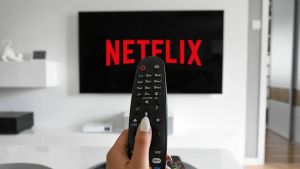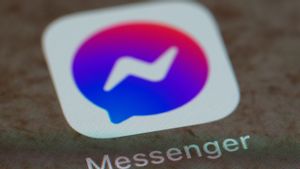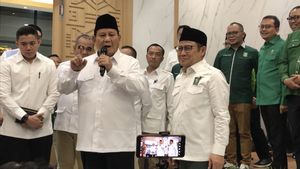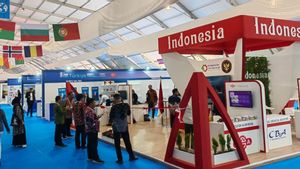
JAKARTA - A new internal document released Tuesday, July 19, details how the big three Big Tech companies favor their own products as a means to beat the competition. Their release comes as lawmakers push to pass stronger antitrust laws by the end of the year.
The document was obtained by the House Judiciary Committee as part of a long investigation into the anti-competitive behavior of Amazon, Apple, Google, and Facebook's parent company, Meta Platform Inc.
The investigation was completed in 2020, but recently published emails, memos and reports provide new evidence to support the committee's call to advance tougher competition rules for the tech industry.
"It's time for Congress to act," Republican David Cicilline, chair of the antitrust subcommittee, said in a statement Tuesday, July 19.
Specifically, the document shows how Amazon and Google pressure independent sellers and smartphone manufacturers to choose their own products and platforms over their competitors.
In a January 2014 email, one Google executive raised concerns over the potential for new Samsung services to compete with the company's "core search experience". In an email chain since 2009, Amazon executives are shown debating whether to limit competitors' ability to advertise on their sites.
Amazon later acquired rival Diapers.com in a deal that House investigators claim helped the e-commerce giant secure its market dominance.
In another email, Google executives discussed how Amazon's involvement is changing the market for personal voice assistants. “Amazon has changed the dynamic here,” reads the heavily edited email. “Amazon has an innate incentive to partner with Alexa because they will pull you from their store if you don't support them.”
Also includes a long-discussed Facebook memo called "Possible End-State for Application Families." First reported by The Information in 2019, the memo describes a “tipping point” at which users will start using other Meta-owned apps, such as Instagram and WhatsApp, beyond Facebook's core platform.
A 2018 memo was written for CEO Mark Zuckerberg outlining ways in which the company can reduce the growth of Instagram and WhatsApp so as not to overtake Facebook's dominance.
"WhatsApp and Facebook coexist as Broadcast Sharing Apps," the memo reads. “It remains unclear whether Instagram and Facebook can coexist… It seems unlikely that the three Sharing Apps can coexist.”
SEE ALSO:
Tuesday's document was released alongside the committee's final report outlining the investigation's findings and legislative solutions to the competition problems they found. Lawmakers argue that the lack of competition in the tech industry has resulted in poorer online products over time.
No Republicans co-signed the report's recommendations, sending a signal that it may be harder for Democrats to push through antitrust reforms this year.
"The fallout from radical antitrust legislation will put the United States at a global disadvantage and make Americans worse off," Carl Szabo, vice president and general counsel for technology industry group NetChoice, said in a statement Tuesday.
"Its reach will extend far beyond the digital marketplace: to consumers of every business, in every industry, in every state," he added.
However, antitrust advocates continue to pressure lawmakers and Senate Majority Leader, Chuck Schumer, to support legislation barring technology platforms from liking their own products.
Antitrust scholars and the American Federation of Consumers urged the Senate to pass America's Bipartisan Online Innovation and Choice Act last week.
"From Amazon and Facebook to Google and Apple, there's no doubt that these unregulated tech giants have become too big to care about and too powerful to put people ahead of profit," Pramila Jayapal said in a statement quoted by The Verge, Tuesday.
The English, Chinese, Japanese, Arabic, and French versions are automatically generated by the AI. So there may still be inaccuracies in translating, please always see Indonesian as our main language. (system supported by DigitalSiber.id)
















